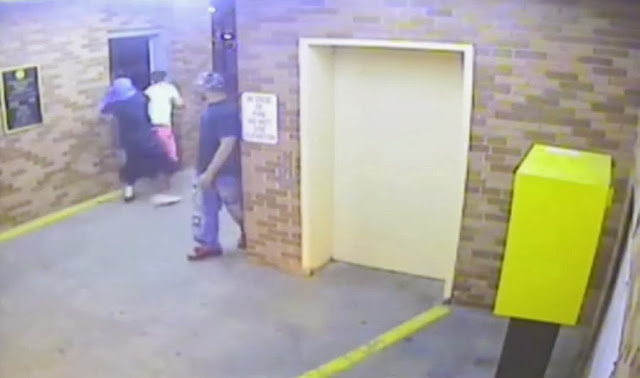The Knockout Game: Moral Panic or Real Concern?
Uncommon Journalism speaks with analysts and experts, who air their thoughts on the highly publicized incidents of youth violence.
 |
| A surveillance video in Columbia, Mo. captures Adam Taylor being attacked in an apparent "Knockout Game" incident in 2009. |
By: James Swift
UncommonJournalism@gmail.com
@UNJournalism
The act goes by many names; “Catch-and-Wreck,” “Point-Em-Out, Knock-Em-Out,” and “Polar Bear Hunting,” among others. While accounts of the so-called “Knockout Game” have been documented in major United States cities like St. Louis and Chicago since the mid-2000s, only recently has the phenomenon sparked national headlines.
While the game is frequently associated with gang initiations, James Clark, vice president of Better Family Life, Inc. in St. Louis, said that most of the time, the culpable parties are usually just teenagers with a surplus of free time. “The rule is to attempt to render a person unconscious,” he explained. “An unexpected, defenseless person…with one blow.”
Dr. Jeffery Butts, director of the John Jay College of Criminal Justice’s Research & Evaluation Center, however, believes there is little evidence to describe such events as true competitions among teenagers. “The documented incidents of this are few, if any,” he said. “All we have are videos of assaults on the street, where it appears that there is no secondary motive.”
Clark, however, said the incidents speak to the desensitization of violence within “the urban core,” which alongside the proliferation of social media, he cites as the primary catalysts for the game’s popularization. “As a society, we have failed to provide love, attention and nurturing for our young people,” he said. “We have failed to teach our children the basic home training; it’s not their fault, it’s our fault.”
Clark said the media has “spun” incidents to have a racial angle, largely centered upon black teens assaulting whites and Asians. “But it’s also an African-American on African-American crisis,” he said. “And I don’t use the word ‘crisis’ lightly.”
Butts also believes there is definitely a “racial angle” to the media’s response to the story -- primarily, in the form of right wing coverage alleging other national news outfits of “covering up” a supposed black-on-white crime dynamic. “I don’t think there’s a racial component to whatever this phenomenon is," he said, "but I definitely think there’s a racial component to the media conversation, and then the public dialogue that’s going on in response to the media coverage."
While Butts has heard several stories about apparently motive-less assaults from his colleagues -- with some stretching as far back as the mid-1980s -- he remains skeptical that the “game” has reached widespread proportions throughout the U.S. “There’s some reality behind it,” he said, “but it’s a very, very rare event with no clear meaning.”
Additionally, he believes coverage of the incidents gloss over a drastic overall decrease in youth violence, which he said has fallen by half over the last two decades.
“The overall context is things are much better than they used to be,” he said. “But this knockout thing seems to have emerged in a way that is almost context-free.”
Clark, however, believes the “knockout game” should be a genuine social concern, although it’s not the only form of youth violence he believes needs to be addressed on the national level. “The knockout game is a symptom of a much bigger problem,” he said. “We can attack the knockout game, but what about the gun violence, the classroom violence, the school violence and the neighborhood violence?”
A violent subculture has been bred and reinforced in many urban communities, Clark said. Until “fundamental” resources, such as mentoring programs and anger management services, are introduced in the communities, he believes the “knockout game” may very well be an omen of even more destructive youth behavior in the future.
“If you think that it’s horrific for a group of young people to physically assault a totally innocent person,” he said, “if you think that’s brutal, we aren’t ready for what they’ll be able to heap on us in the next five years.”
Uncommon Journalism, 2013.



Comments
Post a Comment